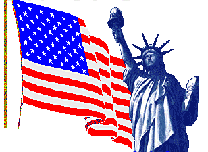|
More information about USA at www.ClearVisionBibleStudies.Com
Joseph Story
Joseph Story (1779-1845), a U.S. Congressman, 1808-9, was appointed in 1811 as a Justice to the United States Supreme Court by President James Madison ("The Chief Architect of the Constitution"). Being the youngest person ever to serve in that position, Joseph Story continued on the bench for 34 years, until his death in 1845. He was instrumental in establishing federal supremacy, Martin v. Hunter's Lessee, 1816, and in establishing the illegality of the slave trade in the Amistad case. A professor at the Harvard Law School, 1821-45, Joseph Story wrote tremendously influential works, including: Bailments, 1832, Commentaries on the Constitution of the United States, 1833, Equity Jurisprudence, 1836, and A Familiar Exposition of the Constitution of the United States, 1840, in which he stated: "We are not to attribute this prohibition of a national religious establishment [in the First Amendment] to an indifference to religion in general, and especially to Christianity (which none could hold in more reverence that the framers of the Constitution).... "Probably, at the time of the adoption of the Constitution, and of the Amendment to it now under consideration, the general, if not the universal, sentiment in America was, that Christianity ought to receive encouragement from the State so far as was not incompatible with the private rights of conscience and the freedom of religious worship. "Any attempt to level all religions, and to make it a matter of state policy to hold all in utter indifference, would have created universal disapprobation, if not universal indignation." - 1833. Joseph Story, Commentaries on the Constitution, 1833 (reprinted NY: Da Capo Press, 1970), Vol. III, p. 726, Sec. 1868, and p. 727, Sec. 1869. See also Joseph Story, A Familiar Exposition of the Constitution of the United States (MA: Marsh, Capen Lyon, and Web, 1840; reprinted Washington, D.C.; Regnery Gateway, 1986), p. 314, Sec. 441, p. 316, Sec. 444. David Barton, The Myth of Separation (Aledo, TX: WallBuilder Press, 1991), p. 32, 79-80. "Our Christian Heritage," Letter from Plymouth Rock (Marlborough, NH: The Plymouth Rock Foundation), p. 5. In Commentaries on the Constitution of the United States, 1833, Vol. III, Justice Joseph Story declared: "It yet remains a problem to be solved in human affairs, whether any free government can be permanent, where the public worship of God, and the support of religion, constitute no part of the policy or duty of the state in any assignable shape. - 1833. Joseph Story, Commentaries on the Constitution, 1833 (reprinted NY: Da Capo Press, 1970), Vol. III, p. 726, Sec. 1868, and p. 727, Sec. 1869. See also Joseph Story, A Familiar Exposition of the Constitution of the United States (MA: Marsh, Capen Lyon, and Web, 1840; reprinted Washington, D.C.; Regnery Gateway, 1986), p. 314, Sec. 441, p. 316, Sec. 444. David Barton, The Myth of Separation (Aledo, TX: WallBuilder Press, 1991), p. 79-80. "Our Christian Heritage," Letter from Plymouth Rock (Marlborough, NH: The Plymouth Rock Foundation), p. 5. In 1844, case of Vidal v. Girard's Executors, Justice Joseph Story delivered the United States Supreme Court's unanimous opinion: "Christianity... is not to be maliciously and openly reviled and blasphemed against, to the annoyance of believers or the injury of the public.... "It is unnecessary for us, however, to consider the establishment of a school or college, for the propagation of... Deism, or any other form of infidelity. Such a case is not to be presumed to exist in a Christian country.... "Why may not laymen instruct in the general principles of Christianity as well as ecclesiastics.... And we cannot overlook the blessings, which such [lay]men by their conduct, as well as their instructions, may, nay must, impart to their youthful pupils. "Why may not the Bible, and especially the New Testament, without note or comment, be read and taught as a Divine Revelation in the [school] - its general precepts expounded, its evidences explained and its glorious principles of morality inculcated? "What is there to prevent a work, not sectarian, upon the general evidences of Christianity, from being read and taught in the college by lay teachers? It may well be asked, what is there in all this, which is positively enjoined, inconsistent with the spirit or truths of the religion of Christ? Are not these truths all taught by Christianity, although it teaches much more? "Where can the purest principles of morality be learned so clearly or so perfectly as from the New Testament?" - 1844. Vidal v. Girard's Executors, 43 U.S. 126, 132 (1844), pp. 198, 205-206. David Barton, The Myth of Separation (Aledo, TX: WallBuilder Press, 1991), pp. 62-63. William W. Story, Life and Letters of Judge Story, Vol. II, Chap. XII. Stephen Abbott Northrop, D.D., A Cloud of Witnesses (Portland, Oregon: American Heritage Ministries, 1987), p. 434. In his commentary of the First Amendment's original meaning, Justice Joseph Story clarified: "The real object of the First Amendment was not to countenance, much less to advance Mohammedanism, or Judaism, or infidelity, by prostrating Christianity, but to exclude all rivalry among Christian sects [denominations] and to prevent any national ecclesiastical patronage of the national government." - Judge Brevard Hand, in Jaffree v. Board of School Commissioners of Mobile County, 544 F. Supp. 1104 (S. D. Ala. 1983). Russell Kirk, ed., The Assault on Religion: Commentaries on the Decline of Religious Liberty (Lanham NY: University Press of America, 1986), p. 84. Gary DeMar, The Untold Story (Atlanta, GA: American Vision, Inc., 1993), p. 113.
WWW.ClearVisionBibleStudies.Com
|
